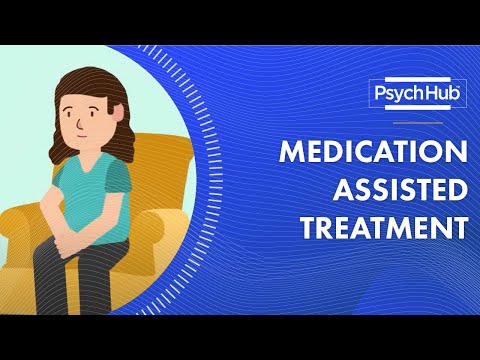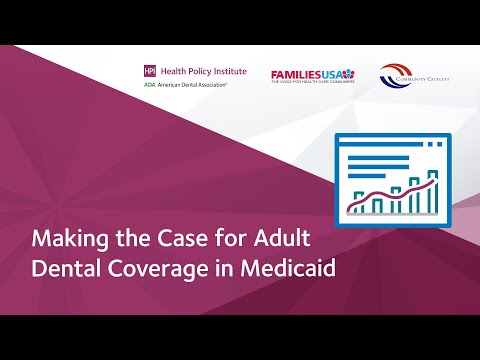Medicaid Paid Assisted Living – What You Need to Know
Contents
- What is Medicaid?
- How can Medicaid help pay for assisted living?
- What are the requirements for Medicaid coverage?
- How do I apply for Medicaid?
- What is the difference between Medicaid and Medicare?
- How do I know if my loved one is eligible for Medicaid coverage?
- What are the benefits of Medicaid coverage for assisted living?
- How does Medicaid coverage work for assisted living?
- What are the drawbacks of Medicaid coverage for assisted living?
- How can I find more information about Medicaid and assisted living?
There’s a lot to know about Medicaid and how it can help pay for assisted living We’ve got all the need-to-know information right here.
Checkout this video:
What is Medicaid?
Medicaid is a government-funded program that provides health insurance for low-income individuals and families. Medicaid pays for a variety of health care services, including doctor visits, hospital stays, and prescription medications. In some states, Medicaid also pays for long-term care services, such as assisted living.
If you or a loved one is considering moving into an assisted living facility it is important to understand how Medicaid works and what coverage options are available. This guide will explain what you need to know about Medicaid and assisted living.
How can Medicaid help pay for assisted living?
If you or a loved one is considering moving into an assisted living facility you may be wondering how you will pay for it. Many families are surprised to learn that Medicaid can help cover the cost of assisted living, in some cases even paying the entire bill.
In order to qualify for Medicaid assistance with assisted living costs, the individual must meet certain financial and health criteria. For example, they must have low income and few assets, and they must need help with activities of daily living such as bathing, dressing, and eating. They must also be able to show that they are not a danger to themselves or others.
If you think you or your loved one may qualify for Medicaid assistance with assisted living costs, the first step is to contact your local Medicaid office. They will be able to tell you what specific criteria need to be met in your state and help you through the application process.
What are the requirements for Medicaid coverage?
To be eligible for Medicaid coverage of assisted living, you must meet certain requirements. First, you must be a U.S. citizen or legal permanent resident. You must also be 65 years of age or older, or be disabled or blind. Finally, you must have low income and few resources.
If you meet all of these requirements, you may be able to get Medicaid to cover some or all of the costs of assisted living. However, Medicaid coverage is not automatic – you will need to apply for it and be approved.
Once you are approved for Medicaid coverage, you will still need to pay a co-pay for your assisted living costs. The amount of the co-pay will vary depending on your income and resources.
How do I apply for Medicaid?
Most states have an online application process for Medicaid. You can usually find a link to your state’s Medicaid website on the U.S. Department of Health and Human Services’ Medicaid page.
When you apply for Medicaid, you will be asked to provide information about your income, assets, and living situation. You may also be asked to provide information about your medical condition.
What is the difference between Medicaid and Medicare?
Medicaid is a state and federal program that provides health coverage for low-income adults, children, pregnant women, people with disabilities, and the elderly. Medicare is a federal program that provides health coverage for people 65 and older, people under 65 with certain disabilities, and people of any age with End-Stage Renal Disease.
How do I know if my loved one is eligible for Medicaid coverage?
To be eligible for Medicaid coverage of assisted living, your loved one must meet certain financial and health criteria. Generally, Medicaid will only cover individuals who have very low incomes and few assets. In addition, most Medicaid programs require individuals to be disabled or aged in order to qualify for coverage.
If your loved one meets the financial criteria for Medicaid coverage, the next step is to check with your state’s Medicaid program to see if assisted living is a covered service. While most states do cover some level of assisted living care, the specifics vary widely from state to state. Some states only cover care in specific types of assisted living facilities, while others have more flexible coverage requirements.
Once you have determined that your loved one is eligible for Medicaid coverage of assisted living, the next step is to find an approved facility. Most states maintain a list of approved facilities that meet their standards for care and quality. You can typically find this list on the website of your state’s Medicaid program.
If you have any questions about whether your loved one is eligible for Medicaid coverage of assisted living, or about how to find an approved facility, you should contact your state’s Medicaid office for more information.
What are the benefits of Medicaid coverage for assisted living?
There are many benefits to Medicaid coverage for assisted living. One of the biggest benefits is that it can help cover the cost of care. Medicaid can also help cover the cost of services and activities that promote independence and quality of life.
How does Medicaid coverage work for assisted living?
There are a number of ways that Medicaid can help cover the costs of assisted living. One way is through Medicaid waivers, which are programs that provide funding for specific services to people who meet certain eligibility criteria. Another way is through Medicaid state plans, which are programs that offer coverage for a broad range of health care services to low-income people.
To be eligible for coverage under a Medicaid waiver you must first be enrolled in Medicaid. In addition, you must meet other eligibility criteria set by the state in which you live. Once you are enrolled in a waiver program, the waiver will pay for certain services that are not covered by Medicaid state plans. These services may include personal care, Home Health Care and respite care.
To be eligible for coverage under a Medicaid state plan, you must meet the following criteria: have a low income, be a U.S. citizen or legal permanent resident, and be either pregnant, have young children, be disabled, or be 65 years of age or older. If you meet these criteria, you will be able to receive coverage for a broad range of health care services, including doctor visits, hospital stays, prescription drugs, and more.
What are the drawbacks of Medicaid coverage for assisted living?
There are a few potential drawbacks to using Medicaid to cover the cost of assisted living. First, not all assisted living facilities accept Medicaid. Of those that do, there is often a waiting list for Medicaid recipients. Additionally, Medicaid does not cover the full cost of assisted living. Recipients may be responsible for a portion of their care, which could be a financial burden. Finally, Medicaid recipients may have limited choice in facilities, as they are only eligible to receive coverage at certain facilities that participate in the program.
How can I find more information about Medicaid and assisted living?
If you have questions about Medicaid and assisted living, the best place to start is with your state’s Medicaid office. You can find contact information for your state’s Medicaid office here: https://www.medicaid.gov/about-us/contact-us/medicaid-contacts.html.
Each state has different rules and regulations regarding Medicaid and assisted living, so it’s important to get in touch with your state’s Medicaid office to learn more about what assistance may be available to you.







